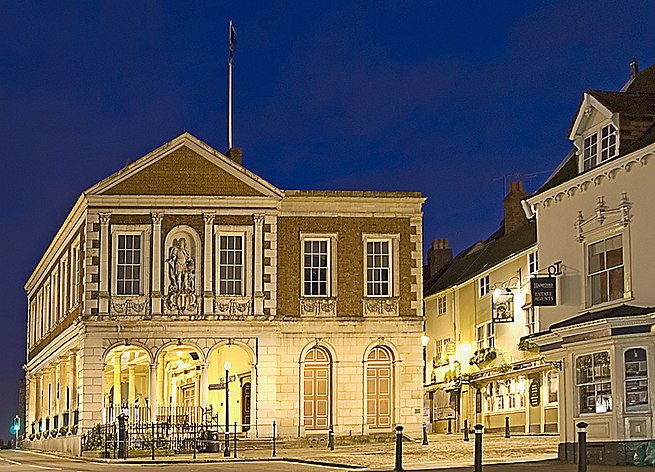
Main Difference
The main difference between Guild and Clan is that the Guild is a association of artisans or merchants and Clan is a group of people united by actual or perceived kinship and descent.
-
Guild
A guild is an association of artisans or merchants who oversee the practice of their craft/trade in a particular area. The earliest types of guild formed as a confraternities of tradesmen. They were organized in a manner something between a professional association, a trade union, a cartel, and a secret society. They often depended on grants of letters patent from a monarch or other authority to enforce the flow of trade to their self-employed members, and to retain ownership of tools and the supply of materials. A lasting legacy of traditional guilds are the guildhalls constructed and used as guild meeting-places. Guild members found guilty of cheating on the public would be fined or banned from the guild.
An important result of the guild framework was the emergence of universities at Bologna (established in 1088), Oxford (at least since 1096) and Paris (c. 1150); they originated as guilds of students (as at Bologna) or of masters (as at Paris).
-
Clan
A clan is a group of people united by actual or perceived kinship and descent. Even if lineage details are unknown, clan members may be organized around a founding member or apical ancestor. Clans, in indigenous societies, tend to be exogamous, meaning that their members cannot marry one another. Clans preceded more centralized forms of community organization and government, and exist in every country. Members may identify with a coat of arms or other symbol to show they are an independent clan. The kinship-based bonds may also have a symbolic ancestor, whereby the clan shares a “stipulated” common ancestor that is a symbol of the clan’s unity. When this “ancestor” is non-human, it is referred to as a totem, which is frequently an animal.
The word clan is derived from the Gaelic clann meaning “children” or “progeny”; it is not from the word for “family” in either Irish or Scottish Gaelic. According to the Oxford English Dictionary, the word was introduced into English in around 1425, as a label for the nature of the society of the Scottish Highlands. The Irish term for clan is fine [ˈfʲɪnʲə]; líon tí is a term for “family” in the sense of “household”; and muintir is a term for “family” in the sense of “kinsfolk”.
-
Guild (noun)
A group or association mainly of tradespeople made up of merchants, craftspeople, or artisans for mutual aid, particularly in the Middle Ages.
-
Guild (noun)
A corporation.
-
Guild (noun)
A group of diverse species that share common characteristics or habits.
-
Guild (noun)
An organized group of players who regularly play together in a multiplayer game.
-
Clan (noun)
A group of people all descended from a common ancestor, in fact or belief.
-
Clan (noun)
A traditional social group of families in the Scottish Highlands having a common hereditary chieftain
-
Clan (noun)
Any association of people behaving clannishly, including one’s immediate family.
-
Clan (noun)
A group of players who habitually play on the same team in multiplayer games.
-
Clan (noun)
A badger colony.
-
Guild (noun)
a medieval association of craftsmen or merchants, often having considerable power.
-
Guild (noun)
an association of people for mutual aid or the pursuit of a common goal.
-
Guild (noun)
a group of species that have similar requirements and play a similar role within a community.
-
Clan (noun)
a close-knit group of interrelated families, especially in the Scottish Highlands
“the clan Macleod”
“civil strife has followed as rival clans jockey for power”
-
Clan (noun)
a large family
“the Watts clan is one of racing’s oldest families”
-
Clan (noun)
a group of people with a strong common interest
“New York’s garrulous clan of artists”
